15 start with J start with J
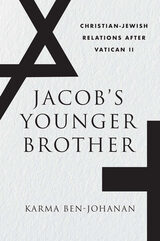
A Seminary Co-op Notable Book
“An astute and evenhanded study of how both faiths view themselves and each other.”
—Publishers Weekly
“An illuminating and important new book…An intellectual, cultural, and political challenge…[F]or anyone for whom the Jewish-Christian story is an important element in defining his or her identity.”
—Israel Jacob Yuval, Haaretz
“An extraordinarily sophisticated, insightful and provocative examination of how Roman Catholics and Orthodox Jews addressed the prospect of reconciliation in the second half of the twentieth century.”
—Glenn C. Altschuler, Jerusalem Post
“A volume from which both Jewish and Catholic scholars may learn…This is an excellent book.”
—Eugene J. Fisher, Catholic News Service
A new chapter in Jewish-Christian relations opened in the second half of the twentieth century when the Second Vatican Council exonerated Jews from the accusation of deicide and declared that the Jewish people had never been rejected by God. In a few carefully phrased statements, two millennia of deep hostility were swept into the trash heap of history.
But old animosities die hard. While Catholic and Jewish leaders publicly promoted interfaith dialogue, doubts remained behind closed doors. Drawing on extensive research in contemporary rabbinical literature, Karma Ben-Johanan shows that Jewish leaders welcomed the Catholic condemnation of antisemitism but were less enthusiastic about the Church’s sudden urge to claim their friendship. Catholic theologians hoped Vatican II would turn the page on an embarrassing history, while Orthodox rabbis, in contrast, believed they were finally free to say what they thought of Christianity.
Jacob’s Younger Brother pulls back the veil of interfaith dialogue to reveal how Orthodox rabbis and Catholic leaders spoke about each other when outsiders were not in the room. There Ben-Johanan finds Jews reluctant to accept the latest whims of a Church that had unilaterally dictated the terms of Jewish-Christian relations for centuries.

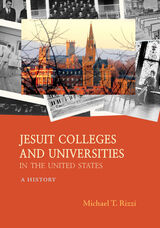

How Jesuit education can help students create meaningful connections in an age of secularism
In A Secular Age, the philosopher Charles Taylor challenges us to appreciate the significance of genuine spiritual experience in human life, an occurrence he refers to as “fullness.” Western societies, however, are increasingly becoming more secular, and personal occasions of fullness are becoming less possible.
In Jesuit Higher Education in a Secular Age, Daniel S. Hendrickson, SJ, shows how Jesuit education can respond to the crisis of modernity by offering three pedagogies of fullness: study, solidarity, and grace. A pedagogy of study encourages students to explore their full range of thoughts and emotions to help amplify their self-awareness, while a pedagogy of solidarity helps them relate to the lives of others, including disparate cultural and socioeconomic realities. Together, these two pedagogies cultivate an openness in students that can help them achieve a pedagogy of grace, which validates their awareness of and receptivity to the extraordinary spiritual Other that impacts our lives.
Hendrickson demonstrates how this Jesuit imaginary—inspired by the Renaissance humanistic origins of Jesuit pedagogy—educates students toward a better self-awareness, a stronger sense of global solidarity, and a greater aptitude for inspiration, awe, and gratitude.
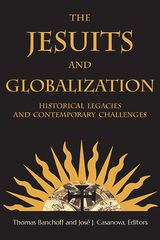
The Society of Jesus, commonly known as the Jesuits, is the most successful and enduring global missionary enterprise in history. Founded by Ignatius Loyola in 1540, the Jesuit order has preached the Gospel, managed a vast educational network, and shaped the Catholic Church, society, and politics in all corners of the earth. Rather than offering a global history of the Jesuits or a linear narrative of globalization, Thomas Banchoff and José Casanova have assembled a multidisciplinary group of leading experts to explore what we can learn from the historical and contemporary experience of the Society of Jesus—what do the Jesuits tell us about globalization and what can globalization tell us about the Jesuits? Contributors include comparative theologian Francis X. Clooney, SJ, historian John W. O'Malley, SJ, Brazilian theologian Maria Clara Lucchetti Bingemer, and ethicist David Hollenbach, SJ. They focus on three critical themes—global mission, education, and justice—to examine the historical legacies and contemporary challenges. Their insights contribute to a more critical and reflexive understanding of both the Jesuits’ history and of our contemporary human global condition.
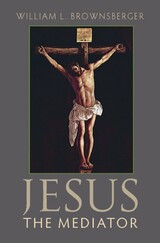

The first complete translation into a modern language of a major authority on the medieval Christian liturgy.
Honorius Augustodunensis’s Jewel of the Soul (the Gemma animae) gleams as one of the most attractive liturgical commentaries from the twelfth century. A lively and effective teacher, Honorius strives to unveil the meaning behind the sacred texts, objects, music, and ritual of the Roman Mass and Divine Office for young initiates. Building on the allegorical approach pioneered in the Carolingian era by Amalar of Metz, he shows readers how their souls are beautified by the liturgy as gold is by a jewel. His flowing and comprehensive commentary gained widespread influence in Western Christendom and was an important source for later liturgical treatises. For the modern scholar this work remains key to understanding the medieval allegorical approach to worship and provides valuable documentation about how these offices were celebrated in the twelfth century. These volumes offer the first complete translation into a modern language of this foundational Latin text on Christian liturgy.

The first complete translation into a modern language of a major authority on the medieval Christian liturgy.
Honorius Augustodunensis’s Jewel of the Soul (the Gemma animae) gleams as one of the most attractive liturgical commentaries from the twelfth century. A lively and effective teacher, Honorius strives to unveil the meaning behind the sacred texts, objects, music, and ritual of the Roman Mass and Divine Office for young initiates. Building on the allegorical approach pioneered in the Carolingian era by Amalar of Metz, he shows readers how their souls are beautified by the liturgy as gold is by a jewel. His flowing and comprehensive commentary gained widespread influence in Western Christendom and was an important source for later liturgical treatises. For the modern scholar this work remains key to understanding the medieval allegorical approach to worship and provides valuable documentation about how these offices were celebrated in the twelfth century. These volumes offer the first complete translation into a modern language of this foundational Latin text on Christian liturgy.


John Cuthbert Ford, SJ (1902-1989) was one of the leading American Catholic moralists of the 20th century. This is the first full-length analysis of his work and influence, one that not only reveals a traditionally Catholic method of moral analysis but also illuminates the conflicts behind and development of Catholic moral teaching during the volatile 1960s.
Ford is best known for his influential contribution to Catholic teachings on three moral issues. His objection to the Allied practice of obliteration bombing during WWII by drawing a sharp distinction between combatants and noncombatants is still studied widely today. Ford campaigned for alcohol education for both clergy and laity and introduced a pastoral approach for assisting and counseling alcoholics. As a member of the Papal Commission on Population, Family, and Birth Rate during the 1960s, Ford was an unyielding defender of the traditional Catholic teaching on birth control that still reigns today.
Drawing on the published works and personal papers of Ford, Eric Genilo begins with a brief description of the theologian's life, career, and influence. The book is divided into two parts. In Part I, Method, Genilo offers an overview of Ford's moral theology in the "manualist" tradition—a 300-year period during which Catholic priests used manuals to instruct the faithful on matters of morality and sin. Genilo then examines Ford's two modes of resolving moral cases and presents Ford's approach to doctrinal development. In Part II, Moral Objectivity, Genilo shows how Ford confronted the growing situation ethics movement, then moves to how he understood freedom and subjective culpability, particularly in the case of alcoholism. Later chapters reveal Ford's theological conflicts with Josef Fuchs, SJ on the issue of birth control, his staunch opposition to totalitarianism, and his moral analysis of how society should treat marginalized persons threatened by the abuse of power.
Genilo concludes with an assessment of Ford's legacy to the development and practice of moral theology, leaving the reader with an in-depth portrait of an extraordinary man who dedicated his life to defending the Church and protecting the most vulnerable persons in society.

It was by far the most controversial document to emerge from Vatican II — Dignitatis Humanae, or the Declaration on Religious Freedom. Drafted largely by prominent Jesuit theologian John Courtney Murray, it represented a departure from previous Catholic teachings in that it acknowledged and accepted as normative the separation between Church and State and declared religious freedom a fundamental human right. In doing this, it set forth guidelines for the role of the Catholic Church in secular liberal and pluralistic societies.
Nearly four decades later, Hermínio Rico examines the continued relevance of this declaration in today's world, compares its most paradigmatic interpretations, and proposes a reconsideration of its import for contemporary church-society relationships. He offers a detailed analysis of how Pope John Paul II has appropriated, interpreted, and developed the main themes of the document, and how he has applied them to such contentious modern issues as the fall of Communism and the rise of secular pluralism. In addition, Rico sets forth his own vision of the future of Dignitatis Humanae, and how the profound themes of the declaration can be applied in years to come to help the church find a way to engage effectively with, and within, pluralistic societies.
Of interest to students of Catholic thought, church-society relationships, the legacy of John Courtney Murray, and the teachings of John Paul II, this book offers a fresh perspective on one of the most important documents in the modern history of the Catholic church.
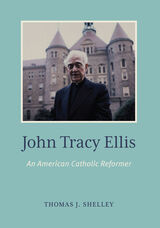

Appointed by Pope John XXIII to the Pontifical Commission on Population, Family, and Birth, Fuchs ultimately found himself disappointed in his three years of service and spent the next thirty years exploring a broad array of issues pivotal to a reconstruction of Roman Catholic natural law theory. This is the first full-length analysis of Fuchs's efforts.
Beginning historically by looking at Fuchs's writings and beliefs before the Pontifical Commission appointment, including his defense of natural law during the "situation ethics" debates of the 50s and 60s, the concept of personal salvation, and the status of "nature" and "human nature," Graham moves to the intellectual conversion that inspired Fuchs to reconsider his concepts following the commission appointment. From there, Graham engages in a sustained critique of Fuchs's natural theory, addressing both the strengths and weaknesses to be found there and suggest possible avenues of development that would make a positive contribution to the ongoing quest to rehabilitate the Roman Catholic natural law theory that continues to dominate the landscape of moral theology today.
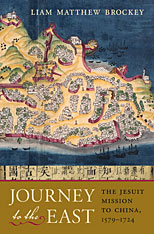
It was one of the great encounters of world history: highly educated European priests confronting Chinese culture for the first time in the modern era. This “journey to the East” is explored by Liam Brockey as he retraces the path of the Jesuit missionaries who sailed from Portugal to China, believing that, with little more than firm conviction and divine assistance, they could convert the Chinese to Christianity. Moving beyond the image of Jesuits as cultural emissaries, his book shows how these priests, in the first concerted European effort to engage with Chinese language and thought, translated Roman Catholicism into the Chinese cultural frame and eventually claimed two hundred thousand converts.
The first narrative history of the Jesuits’ mission from 1579 until the proscription of Christianity in China in 1724, this study is also the first to use extensive documentation of the enterprise found in Lisbon and Rome. The peril of travel in the premodern world, the danger of entering a foreign land alone and unarmed, and the challenge of understanding a radically different culture result in episodes of high drama set against such backdrops as the imperial court of Peking, the villages of Shanxi Province, and the bustling cities of the Yangzi Delta region. Further scenes show how the Jesuits claimed conversions and molded their Christian communities into outposts of Baroque Catholicism in the vastness of China. In the retelling, this story reaches across continents and centuries to reveal the deep political, cultural, scientific, linguistic, and religious complexities of a true early engagement between East and West.
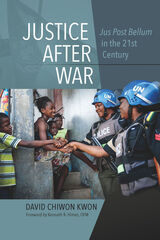
READERS
Browse our collection.
PUBLISHERS
See BiblioVault's publisher services.
STUDENT SERVICES
Files for college accessibility offices.
UChicago Accessibility Resources
home | accessibility | search | about | contact us
BiblioVault ® 2001 - 2024
The University of Chicago Press









